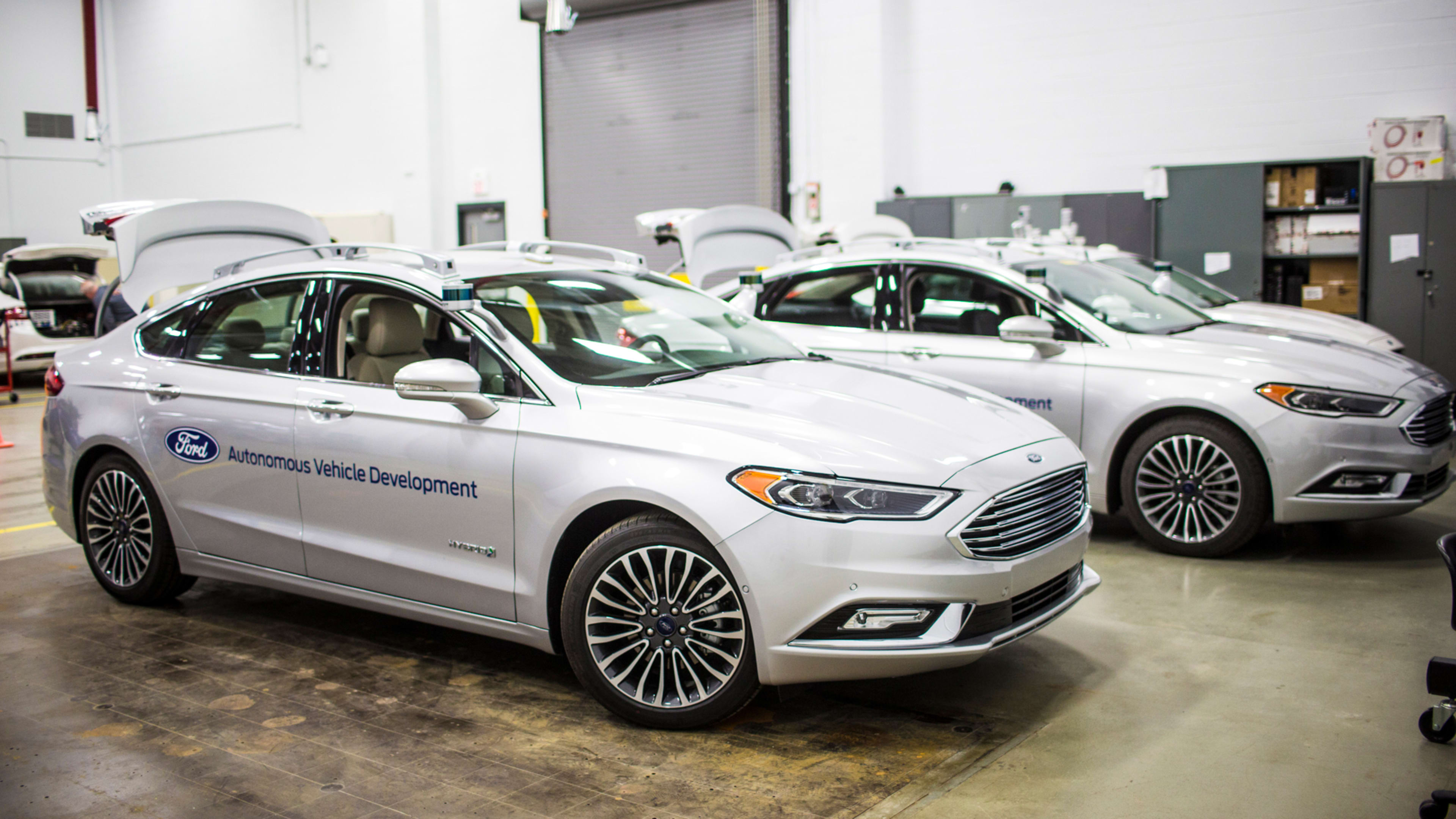Ford says the industry has overhyped autonomous cars. At the Detroit Economic Club on Tuesday, CEO Jim Hackett said that while Ford still plans to roll out autonomous vehicles in 2021, the use cases will be limited, according to Bloomberg.
“We overestimated the arrival of autonomous vehicles,” he said, adding that “its applications will be narrow, what we call geo-fenced, because the problem is so complex.” He still thinks that self-driving cars will arrive broadly at some point, and that they will change the world.
Ford has pledged to invest $1 billion in Argo AI, an artificial intelligence company that is developing a virtual driver system, by 2022. Other car companies are heavily invested, too. For instance, Volkswagen is reportedly putting $1.7 billion into Argo AI. Meanwhile, Honda has invested $750 million in General Motors’s self-driving subsidiary Cruise Holdings, with plans to invest as much as $2 billion into the program over the course of a little more than a decade. General Motors acquired Cruise for more than $1 billion in 2016, according to Forbes; the division is now valued at $14.6 billion.
Last year, Reuters reported setbacks at Cruise. Its cars had difficulty recognizing pedestrians, bicycles, and other objects, according to the report. It wasn’t the only company having problems. A self-driving Uber was involved in a fatal accident, which put its whole autonomous program on pause. There were also multiple reports that Waymo, largely considered to be the leader in this field, was having trouble with its public pilot program in Phoenix. After removing safety drivers from the drivers seat for roughly a year, the company decided to put them back up front.
Not only is the technology still very much in development, so are standards and regulation. There is no governing body overseeing the safety of self-driving cars.
While self-driving cars might have seemed imminent only a few years ago, executives are now more circumspect, and there is much more focus on the limitations of the technology. At the New York Times Deal Book conference last November, GM CEO Mary Barra promised Cruise was on track to roll out a self-driving-powered ride-hail service this year, but underscored that when it comes, it will be confined to a small geographic area.
Self-driving cars are coming. But will most people interact with them or even see them? Probably not anytime soon. The self-driving future is still a relatively distant dream.
Correction: The article has been updated to clarify that the Volkswagen deal with Argo AI is reported not confirmed.
Recognize your brand’s excellence by applying to this year’s Brands That Matter Awards before the early-rate deadline, May 3.
